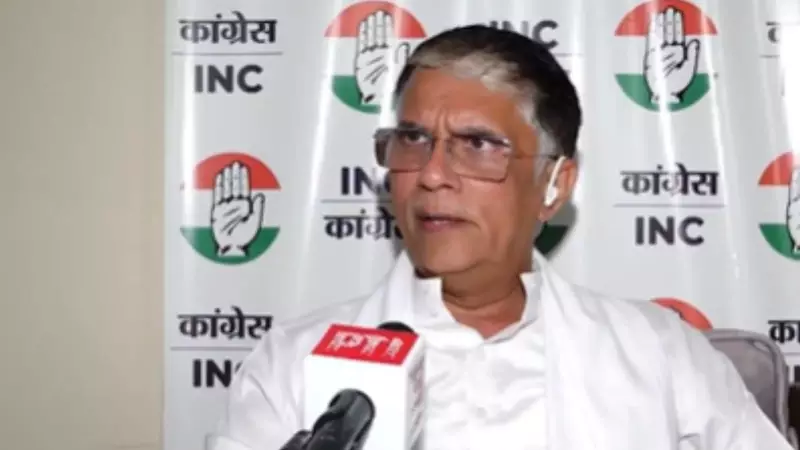
The Congress party has slipped into a state of denial following its dismal performance in the Bihar assembly elections, with its leadership choosing to blame the Election Commission of India rather than confront its own deep-rooted organizational and ideological failures. This reaction came as the National Democratic Alliance (NDA) secured a landslide victory in the state.
A Pattern of Denial and Missteps
As results poured in, Congress national spokesperson Pawan Khera set the tone for the party's response. He claimed that the imprint of Chief Election Commissioner Gyanesh Kumar Gupta was writ large over the results. This accusation, however, only served to highlight the party's refusal to acknowledge the real issues plaguing it, from a lack of inspiring leadership to a non-existent mass base in the state.
The Bihar results underscore a persistent decline for the Congress. In the 2020 assembly polls, the party, as part of the Mahagathbandhan, contested 70 seats and won 19, with a vote share of just 9.6 per cent. It was widely criticized for overstating its influence to secure a disproportionate number of seats in the alliance, ultimately pulling the opposition down. This time, the performance was even more abysmal. The party contested 61 seats, but trends indicated it was leading in only 5 constituencies.
Leadership Vacuum and Failed Campaign
The campaign, led by the party's de facto leader Rahul Gandhi, was reduced to a twin-agenda focus: a caste census and allegations of vote theft (vote chori). This strategy backfired spectacularly. Observers noted that the Nitish Kumar government had already conducted a caste survey in 2022, and the Modi government at the Centre had ordered a nationwide caste count. Furthermore, Rahul Gandhi's attempts to blame the Election Commission for conducting a Special Intensive Revision (SIR) before the polls failed to resonate with voters.
Contrast this with the BJP's approach. Top leaders including Prime Minister Narendra Modi, Amit Shah, and J.P. Nadda campaigned relentlessly, motivating their cadre. Meanwhile, Rahul Gandhi largely disappeared from the state after an initial foray, leaving the party in a lurch.
Ignoring Social Dynamics and Scoring Self-Goals
Critically, the Congress party's top brass consistently refused to read the social dynamics in Bihar. The party has forfeited the support of its traditional vote bank, which includes upper castes, Dalits, and Muslims, and made no visible attempt to reclaim it. Compounding its problems, the party replaced its state president literally on the eve of the assembly polls.
The Congress also committed a significant political blunder by criticizing the Union Budget presented by Finance Minister Nirmala Sitharaman, which had made generous allocations for Bihar. The party's communications in charge, Jairam Ramesh, sarcastically referred to the allocation as a pre-poll bonanza. Political observers in Bihar felt this was a massive self-goal, reinforcing the Congress's image as an anti-Bihar party.
As American sociologist Theda Skocpol noted, a dynamic organization needs a proper ideology, inspiring leadership, a mass base, and a strong structure. In Bihar, and across India, the principal opposition party is showing a severe deficit on all these fronts, raising existential questions about its future.






